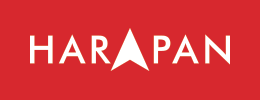The United Nation (UN) defines an ageing nation as a country in which the population aged 65 years old and above exceeds 7%. Based on this definition, we are an ageing nation. Looking at the trajectory of our rough birth rates, fertility rates, and death rates, Malaysia is expected to become an aged society by 2045, where more than 17% of the population are 80 years old and above.
Demand for caregiving will definitely skyrocket as the percentage of elderly population rises. HARAPAN is always planning ahead and we will invest public funds and encourage private investments into the service sector, caregiving infrastructure, and forging social security systems which are more inclusive and comprehensive.
We can prepare ourselves to face the reality of being an aged society by implementing the National Care Economy and Ageing Community Preparedness Plan – SiagaJaga.
Professional Caregiving Sector
Professionalising the caregiving sector so that it will be given the same level of significance and respect comparable to other specialised healthcare sectors such as nursing and physiotherapy. Building up capacity and training to achieve Caregiver Support Ratio (CgSR) in accordance with our ageing population by 2035.
Caregiver Assistance and Allowance
Institutionalising assistance and allowance for caregivers targeted towards those who are forced to quit employment in order to care for family members who have been struck by misfortune.
Mobile Care
Mobile care service – Combining in-situ caregiving for those who have lost the capacity.
One Stop Caregiving Facilities
One Stop Caregiving Facilities will also be included in development requirements based on the ratio of the population, similar to how playgrounds and places of worship are part of development planning requirements.
Incentivising Familial Institution
Strengthen the family institution by incentivising households with elderly members.
Strategic Intervention
For the urban poor and citizens in remote locations, strategic interventions will be carried out to streamline operations and coordination between agencies and primary public healthcare service institutions, volunteer caregivers, certified field caregivers, local authorities, and NGOs. This collaboration also extends to community leaders, academic institutions, private entities to normalise regular health check ups and mobile caregiving services.
